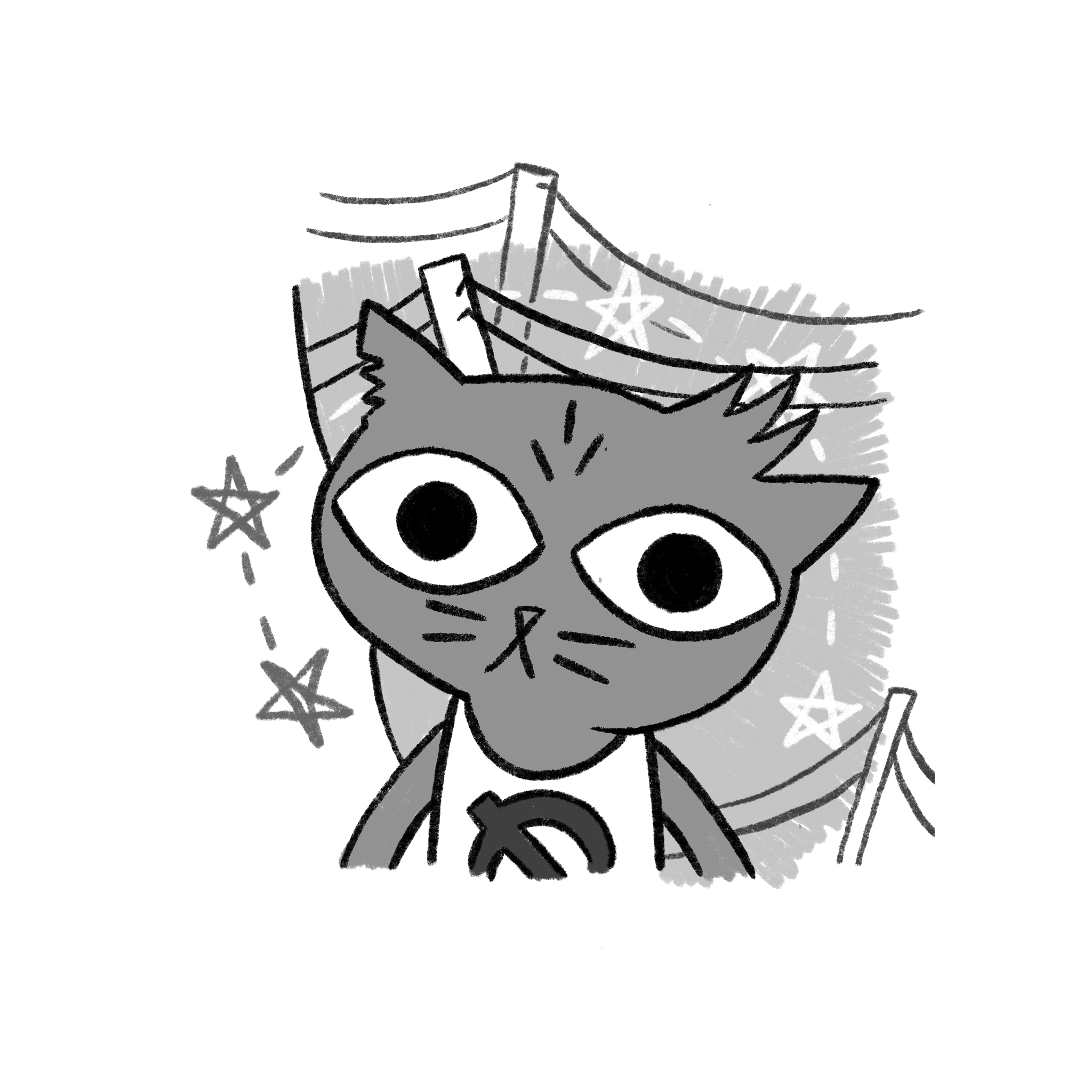Night in the Woods: Narrative over Noodling
February 10, 2023
 Celeste Mercier
Celeste MercierThere’s nothing more scrumptiously subversive than a game that deals in delayed gratification. It’s something not commonly associated with screens, with spending hours upon hours in the world of instant inputs, stunning colors and frantic beep-bloops. And it’s a stark rejection of the typical triggers that gamers may flip to drown themselves in dopamine. But for a game like “Night in the Woods,” which strives to provide narrative substance, a nourishment beyond the gluttonous buffet that is raw button-presses alone, delayed gratification is its lifeblood. It’s what gives the experience nuance, and the developer room for emotional depth. It’s what allows for the ups and downs of agency, the range of exploration for compelling interactive content. And so it’s interactive media’s departure from picture books, and from the stigma that games are typically given. Because, just as an avid reader isn’t someone simply turning pages, an earnest player of a game isn’t just sitting there and twiddling their thumbs.
Mae Borowski, our protagonist in this beautifully-bittersweet adventure, is back home from college and won’t tell her parents why. She’s a perfect link for any player into a world of rich analytical gameplay—because who is struggling more with the complexities of personal agency than a student who just took the initiative to renounce their track at college? As the player you control Mae, forgotten by her parents, as she walks home in the rain. You’re immediately and powerfully forced to empathize with her, and you certainly can’t just blame her for her choices, as we’ve all felt the weekday allure of the nearby Amtrak train.
But Mae’s not yet fully independent. Her mornings start late in her parents’ creaky attic. She’s idle, yet all over the place, drowning out her mother with the pickings on her bass. During the day, she’s out the door and on the streets, because there, as she did in childhood, she can let loose and explore, unrestricted, allowing the player to get busy.
“Night in the Woods” is a platformer and brings with its familiar mechanics a sense of home. But it’s also a little awkward. It’s outgrown. Mae, with her recently-acquired freshman fifteen and having lost an edge of childhood audacity, doesn’t seem quite as nimble as she used to be—and the player feels this in the subtleties of the gameplay. Jumping from ledge to ledge, from telephone wire to windowsill (Did I forget to mention that Mae is an anthropomorphic cat?), the player finds the need to plan out their moves early, as if they don’t feel quite confident that Mae knows her own weight—her own gravity. Because she can’t jump her best, after all, unless she’s got plenty of room, and has psyched herself up for the attempt. And though her old haunts are reachable with effort, they’re fittingly overrun with middle-schoolers. There aren’t any clear rewards for your jumps, just cranky neighbors, familiar faces and the inevitability of your own impending future. There’s no goal or clear objective, other than to find your own path, your own meaning. And so you’d better do it fast, because it feels like your neighborhood is shrinking.
The emotional core of “Night in the Woods” is further complemented by its commitment to great narrative. From bits of dialogue you can access across the map to its grander monologues and scenes concerning homecoming, heart-finding and letting go, strong writing is tied to the choices the player makes, each of which builds toward a meaningful lesson in purposeful time investment. Who you see, who you talk to and who you spend your time with, each of these choices offers impactful, varied dialogue, and it’s up to the player to maximize them as they see fit. The major decision of each day comes after band practice, when you must decide: Do you see Bea, your more intimate friend, for a heavy heart-to-heart at the mall? Or do you hang out with Gregg, the rapscallion, to forget your troubles with a knife fight on a ledge? It’s up to Mae, and so also the player, to choose the right places for themselves to be.
And so the end of the game isn’t perfect, whichever it is that you happen to see. But no matter what, you’re invested, because you’ve considered, performed and justified your actions along every step of the way. Some of your choices, of course, you come to wish you could have done over. You still remember how it felt to push down that interminably depressing button, to finally break the ice with your parents. But the beauty of a game like “Night in the Woods” is that it has forced you to learn not to noodle. Like Mae with her bass and her band, you now feel proud of the choice to go practice with your friends. And so the payoff is like music: it resolves. And there’s plenty of depth in resolution.

Comments
Before submitting a comment, please review our comment policy. Some key points from the policy: